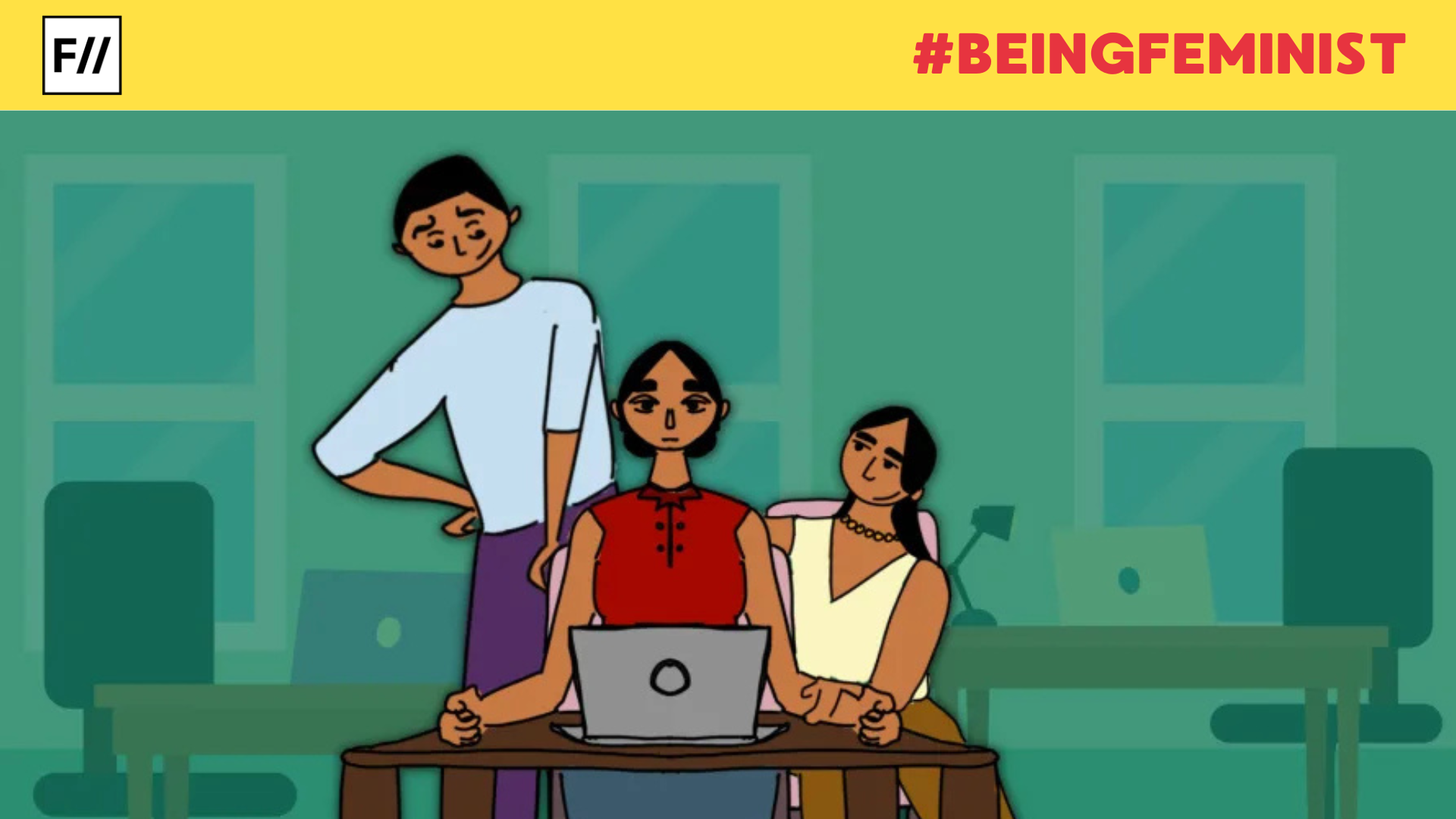Sara Ruddick in ‘Maternal Thinking as a Feminist Standpoint’ (1989) carries forward bell hooks’s debate on making and creating a space for feminist epistemology. But her location is maternal thinking. What is a mother’s standpoint? Is she even granted one? Even if she is, is that standpoint overtly ‘sentimentalised’ so as to fit into the strategy of male hegemony which controls female sexuality? Ruddick states, “Boys, who are meant to become ‘masculine’ are more apt than girls to define themselves as ‘non-maternal female’.”
The physicality of maternal work is often dismissed as immaterial because care labour and mothering are non-remunerative. Therefore, in a materialistic world, a mother’s work is not economically valued, and hence, easily interpreted as less worthy, or as Michel Foucault points out, maternal thinking is “subjugated knowledge”. A mother’s work is ‘naturalised’ because a woman is expected to perform the roles of a ‘caregiver’ and ‘nurturer’. Kathi Weeks offers an important intervention in this regard through her work Constituting Feminist Subjects (1998) in which she discusses women’s labour and how there is an urgent need for a standpoint to assess the relationship between capitalist production and domestic reproduction. She explains, “This reproductive ‘women’s work’, which is at once necessary to and marginalized by capitalist valorization processes, was posed as a potential source of feminist standpoints: alternative knowledges, resistant subjectivities, and feminist collectivities.”
The physicality of maternal work is often dismissed as immaterial because care labour and mothering are non-remunerative. Therefore, in a materialistic world, a mother’s work is not economically valued, and hence, easily interpreted as less worthy, or as Michel Foucault points out, maternal thinking is “subjugated knowledge”.

Also read: ‘Roti Making Is A Loaded Process’: Reflections On Labour & Patriarchy In The Kitchen
During the pandemic, it was evident how working mothers were doubly and triply burdened. The layoffs affected the women disproportionately and in an irreparable way. In the US, “According to a report by the National Women’s Law Center, women account(ed) for 55 per cent of overall net job loss since the start of the pandemic, and since February 2020, women have lost over 5.4 million net jobs. In December 2020, all of the jobs lost were held by women, while men gained 16,000 jobs – marking a 33-year low in women’s labor force participation.” Additionally, the pandemic saw an exacerbation of gender inequality in domestic spaces, with more women abruptly stuck at home handling the children, facilitating their online classes while also trying to adjust to the new norm of working from home and the resultant blurring of work and office hours’ boundaries.
During the pandemic, it was evident how working mothers were doubly and triply burdened. The layoffs affected the women disproportionately and in an irreparable way. In the US, “According to a report by the National Women’s Law Center, women account(ed) for 55 per cent of overall net job loss since the start of the pandemic, and since February 2020, women have lost over 5.4 million net jobs. In December 2020, all of the jobs lost were held by women, while men gained 16,000 jobs – marking a 33-year low in women’s labor force participation.”
And even the concept of leisure seems unthinkable if a woman, especially a mother, tries to claim it. The question of leisure is evaluated by quantifiable markers of labour. “Questions about who rests and how are inextricable from the socio-political frameworks embedded in society and an individual’s position within this nexus. Labour continues to be understood largely through masculinist tropes,” says Dipanjali Singh on The India Forum. As Singh further explains, men’s ‘visible’ labour is “deemed worthy of rest” while the ‘invisible’ housework is rarely considered legitimate labour and women’s claims to rest are dismissed as unnecessary.
Also read: From Veruthe Oru Bharya To The Great Indian Kitchen: Female Identity In The Domestic Space
Political leaders in election campaigns in Kerala, West Bengal and Tamil Nadu earlier this year promised cash incentives to homemakers, leading to the debate around how this might lead to the essentialisation of women as homemakers or ‘housewives’ relegated to the domestic realm and men as the providers who would go out in the public space and work. At the same time, realistically, it would also mean a recognition of the housework that continue to be taken up largely by women and could be, therefore, seen as a step towards remuneratively caring for care work, thus quantifying it in the process.
With over 10 years’ experience in publishing and journalism, Ipshita Mitra has a Bachelor’s degree in English Literature from Miranda House, DU and holds a PG Diploma in English Journalism from IIMC. She did her MA in Gender and Development Studies and is currently pursuing her PhD in Gender Studies from IGNOU. She has worked with The Times of India, The Asian Age, The Quint, Om Books International, World Monuments Fund India Association, and The Energy and Resources Institute (TERI). In 2016, her short story ‘Cacophony of Silence’ was published by Nikkei Voice, a Canadian-Japanese newspaper. In 2020, her short story ‘Bohemian Sailor of the Gulf’ was published by Sublunary Editions, a Seattle-based independent publisher. The Indian Quarterly (April–June 2021) published her short fiction, ‘Kabuliwala Returns’. She writes on books, culture, environment, and gender for TerraGreen, The Hindu, Scroll.in, The Wire, Wasafiri, Firstpost, Huffington Post, India Currents, and others. Follow her on Twitter @ipshita77 and on Instagram.
Featured image source: Fortune
About the author(s)
With over 10 years’ experience in publishing and journalism, Ipshita Mitra has a Bachelor’s degree in English Literature from Miranda House, DU and holds a PG Diploma in English Journalism from IIMC. She did her MA in Gender and Development Studies and is currently pursuing her PhD in Gender Studies from IGNOU.
She has worked with The Times of India, The Asian Age, The Quint, Om Books International, World Monuments Fund India Association, and The Energy and Resources Institute (TERI). In 2016, her short story ‘Cacophony of Silence’ was published by Nikkei Voice, a Canadian-Japanese newspaper. In 2020, her short story ‘Bohemian Sailor of the Gulf’ was published by Sublunary Editions, a Seattle-based independent publisher. The Indian Quarterly (April–June 2021) published her short fiction, ‘Kabuliwala Returns’. She writes on books, culture, environment, and gender for TerraGreen, The Hindu, Scroll.in, The Wire, Wasafiri, Firstpost, Huffington Post, India Currents, and others. She tweets @ipshita77.





